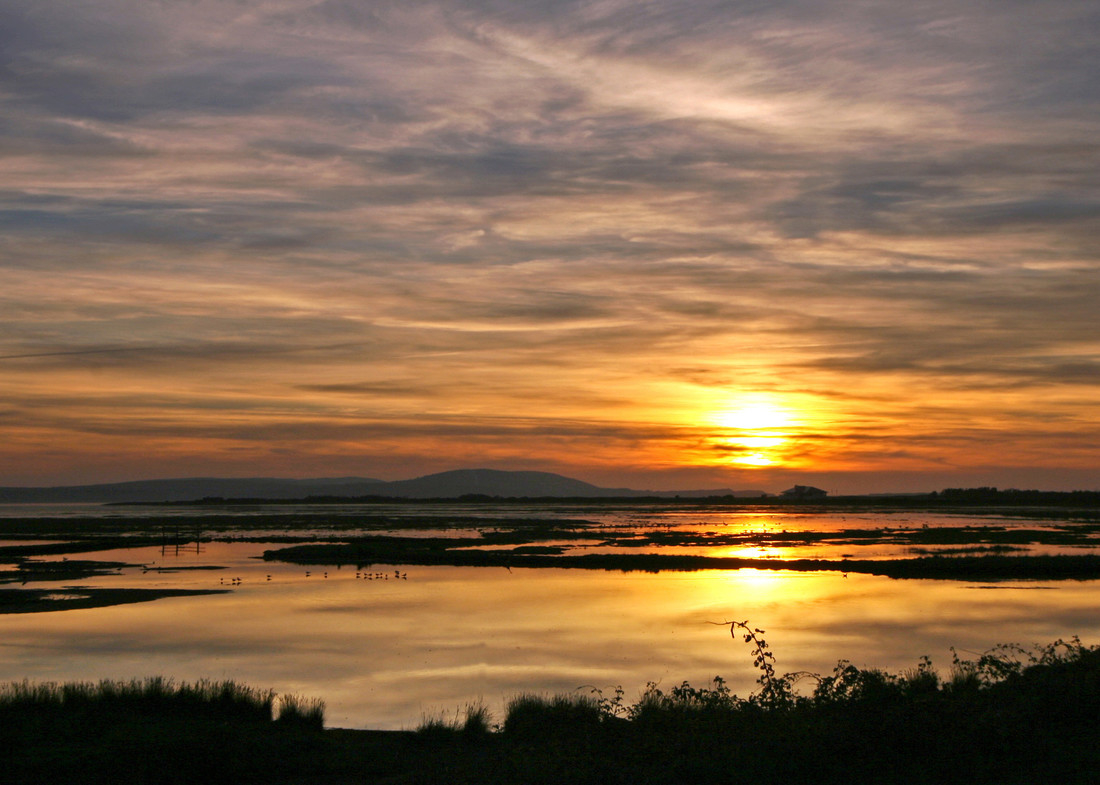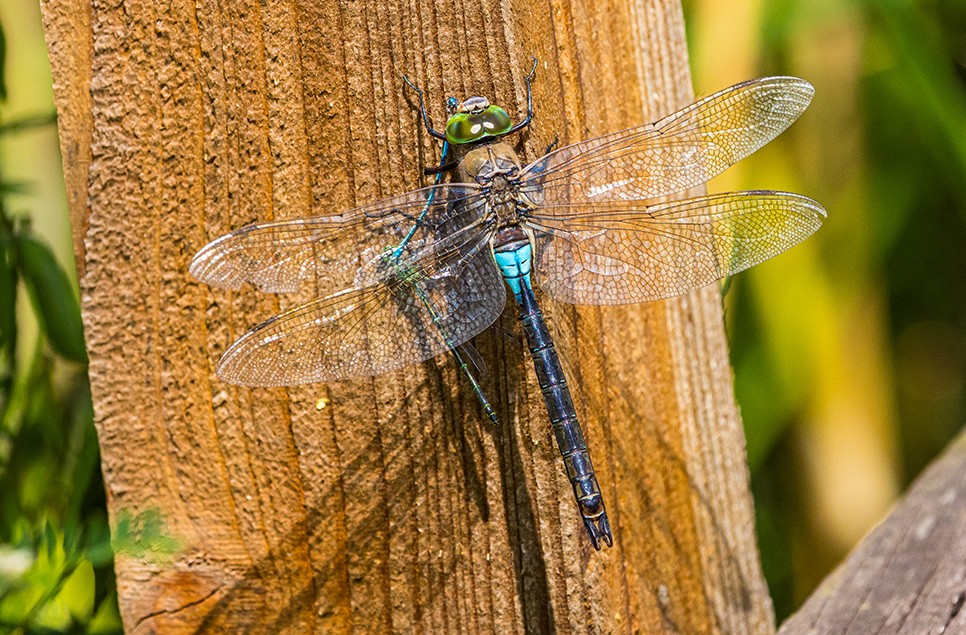Huge nature, wellbeing and climate cost of coronavirus
Environmental charities warn health of planet at risk from coronavirus impact

Major UK nature, science and conservation organisations are warning that the impact of the coronavirus has dealt a significant blow to nature’s recovery and their ability to provide natural solutions to climate change. The charities are very concerned that the financial aid government is currently offering will not be sufficient to enable them to carry on their vital frontline work.
It’s clearly right that the Government is focused on people’s health and livelihoods now, but it must also act for the future of our planet and all the benefits our natural world provides. This is key to both people’s health and well-being and the future prosperity of our economy. In the long-term, if our environmental charities are financially compromised, we will lose the fight against climate change and environmental decline.
Our environmental charities protect 750,000 hectares of land and 800 miles of coastline, help millions of people benefit from a healthy environment, champion laws and policies to protect our planet, and are critical restorers of the millions of hectares of woodland, wetlands and meadows needed to help mitigate climate change. But without additional help, special places at the heart of communities may potentially have their doors closed permanently and access to nature reduced, treasured landscapes and wildlife could be left unprotected, and vital conservation and climate change mitigation work at home and abroad could be abandoned.
Environment charities are experiencing a dramatic loss of income resulting from the closure of visitor attractions, cancelled fundraising, and decreased donations and access to grants. This will have a huge and lasting impact on their ability to care for our land, protect our wildlife, and tackle climate change and nature’s decline for years to come.
Key findings from new Wildlife and Countryside Link research with 55 environment organisations, demonstrate that:
- 27% of environmental charities (eNGOs) surveyed say they are either at high risk of becoming financially unviable in the coming months or financial reserves sufficient for four months or less
- Almost half of those surveyed (47%) say their financial reserves are sufficient for six months or less
- Of those that were able to provide details of expected financial losses the expected loss for just 23 organisations is £88 million (please note this figure does not include some of the biggest eNGOs and excludes many costs still to be calculated, it is therefore likely to be a significant underestimate and is not a figure for the whole sector)
- Almost three-quarters of organisations polled said they expect to hit funding restrictions from grant providers and government in coming months, with half already finding their funding affected
Martin Spray, Chief Executive of Wildfowl and Wetlands Trust (WWT), said: ‘The impacts of the Covid-19 pandemic on WWT are profound and widespread. We attract around 1,000,000 visitors a year who are inspired to help save wetlands at our Wetland Sites, including 50,000 schoolchildren who also benefit from our outdoor learning programmes. Over 1,000 volunteers from local communities bring wetland nature alive for these visitors and help to monitor wildlife and maintain wetland habitats. With our Wetland Centres now closed, these benefits are lost along with the significant income that plays such a major part in funding our vital conservation work across the globe.’
Craig Bennett, CEO of The Wildlife Trusts, said: ‘We’re facing a climate and ecological emergency, and we can’t press pause on addressing those because we’re also facing a public health emergency. Otherwise we’ll just find ourselves lurching from one crisis to another. The Government knows that it will need to work in close partnership with nature organisations if it is to have any hope of delivering on its 25 year environment plan – and its objective to leave the environment in a better state for the next generation. We are, in many cases, its prime delivering partners. It’s crucial that we continue to deliver this public service and that our ability to do so isn’t lost during this crisis.’
Patrick Begg, Outdoors and Natural Environment Director at the National Trust said: ‘The huge numbers of people who flocked to our countryside just before lockdown alongside all those using local footpaths right now to get essential physical and mental refreshment, shows how vital a healthy, vibrant natural environment is for people as well as wildlife and nature. Our natural environment should be at the foundation for building the UK’s recovery, helping sustain and grow wellbeing and responding to the climate emergency. But we need environmental charities to be there, in good shape, to help deliver that recovery when the country reopens.’
‘Dominic Jermey CVO OBE, Director General, ZSL (Zoological Society of London), said: ‘The pandemic is a huge challenge for ZSL. For the first time since WW2 we have had to close ZSL London and Whipsnade Zoos to visitors, cutting off our biggest source of income and threatening the future of not only our fieldwork, but the whole organisation. Where possible our projects go on and have never been more important. The Covid-19 outbreak most likely began at a wildlife market in China, and only by understanding diseases in wild animals and how they interact with people can we hope to identify the risks and prevent something like this happening again. But, like all the UK's science and conservation charities, we may be unable to continue without support. ZSL and other nature organisations need immediate and long-term aid from government if we are to rebuild following this crisis and deliver our vital research and conservation work around the world.’
This warning comes at a time when more people than ever before are waking up to their need for nature. Nature charities are experiencing a huge resurgence of interest in wildlife, Spring and, since lockdown, vast volumes of traffic to their websites that provide inspiration for connecting with the natural world at home. For example, the Wildlife Trusts’ webcams page has had a three-fold increase in hits on this time last year and the National Trust social media engagement has increased since social restrictions began with Facebook and Twitter reach increasing by a third. People are discovering that they need nature more than ever. The problem is that nature also needs us to fund it.
Social distancing and lockdown mean that many environment charities have lost their main sources of income – revenue from visitor sites and planned events and activities for fundraising, along with funding from Government and others being affected. There will also be longer-term knock-on effects in expected membership and donations as the country struggles financially, and with grants from government for environmental works put on hold or cancelled. With environmental charities left out of the government’s business rescue package[2] and the £750m charity aid package falling short of the £4billion NCVO estimate is needed, eNGOs are challenging government to look at additional funding needed to enable nature charities to carry out their vital work.
The National Trust, the Wildfowl and Wetlands Trust (WWT), the Wildlife Trusts, and ZSL are among the organisations facing a large financial toll. The impacts on them include:
- huge pressures for the Wildlife Trusts at an already financially stretched time after tackling flooding and ash dieback emergencies, with visitor sites accounting for half their income and vital conservation work on nature reserves unable to be carried out
- the Wildfowl and Wetlands Trust have lost their biggest source of income with their sites closed with vital conservation work halted, including the rearing and release of threatened bird species
- ZSL's two zoos are a significant source of income for the charity, bringing in about 40% of the funds needed to help continue its global field projects as well as the care of the animals, and upkeep of the zoos.
- The National Trust has closed all of its pay for entry sites, shops and cafes, which contribute a significant amount to its annual income, particularly during the usually busy Easter period. This will have an impact on a range of planned projects and activities, some of which are being paused in the short term.
To keep on track in the race against climate change and ecological decline, environment groups are calling on government to:
- Environment groups faces a short-term funding precipice and long-term decline because of the virus. These groups are highly at risk because they plough income into frontline conservation, scientific and policy work and typically have small financial reserves. ENGOs urge the government to consider additional short-term emergency funding to enable environment charities to deliver their core work on conservation and climate change mitigation that are so key to meeting government targets;
- For charities, an equally urgent financial risk is long-term loss of membership and donation revenues. Large-scale losses would continue long after restrictions are lifted, which makes environmental charities particularly vulnerable. So far, the Government has made no provision to help with this long tail of losses. The groups say a resilience and recovery fund is needed to help environmental charities rebuild in the longer-term while keeping up their work to beat climate change and save nature.



